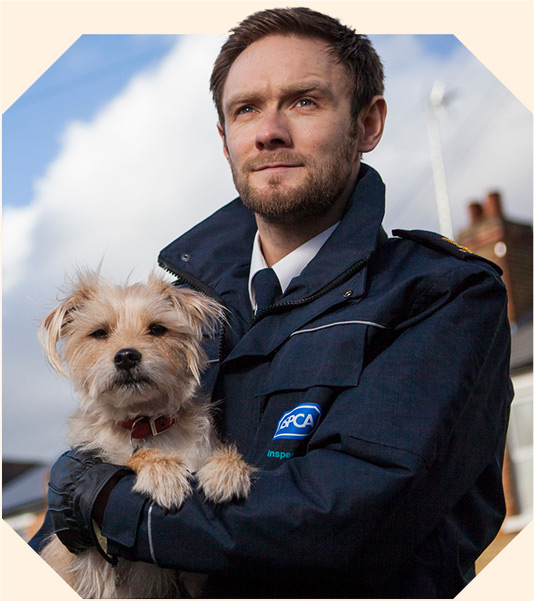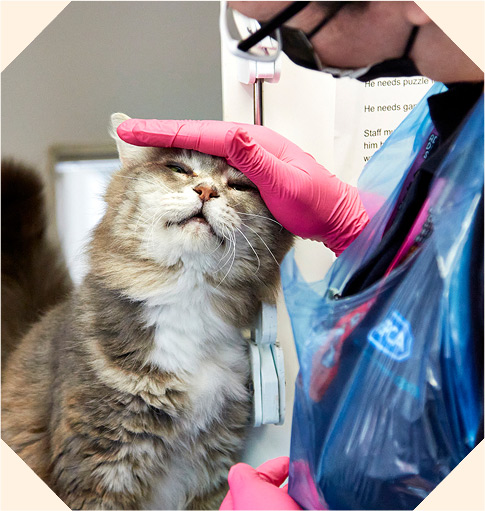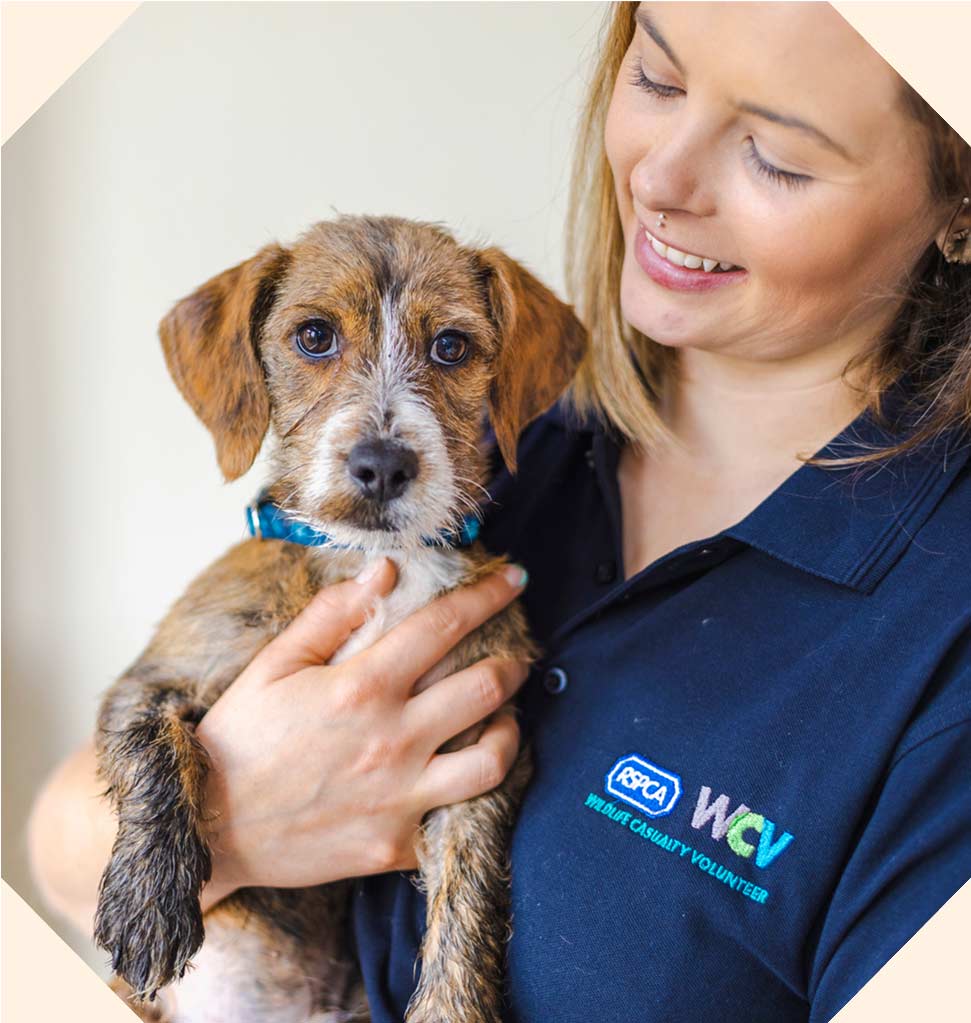Inspectorate
Our aim is to prevent cruelty. In most cases investigated by our inspectors, the welfare of the animals is improved by giving advice and education. This advice is followed by the majority of owners who only want the best for their animal.
- We have the equivalent of only 330 frontline rescuers covering all of England and Wales.
- On average, we have one officer (including inspectors and animal rescue officers) for every 180,000 people in England and Wales - that's the equivalent of one officer covering the entire population of a city or town like Southend, Swindon or Warrington.
- By contrast, there is one frontline police officer for every 566 members of the public.
- Each inspector, on average, drives around 80 miles a day.
- We also have 236 Animal Rescue Volunteers giving up their time and supporting us on the frontline - rescuing, collecting and transferring animals in need.

Cruelty line facts
In 2024, our cruelty line received 907,797 calls from members of the public. That's the equivalent of:
Branches
We run 45 animal centres, providing care, rehabilitation and rehoming for the most abused, neglected and abandoned animals in England and Wales. We also have 139 'branches' across England and Wales and two branch trusts - doing invaluable work in our communities, including running 45 animal centres across the country in addition to the establishments above.
Find your local branch for direct support on animal welfare including advice, microchipping, low-cost vet care, rehabilitating and rehoming.
Last year, our branches helped:
- Rescued, rehabilitated and rehomed over 26,000 abused and neglected pets.
- We took in and cared for 13,637 sick, injured and orphaned wild animals.
- Contributed to five new animal welfare laws in England and Wales.
- Advised more than 200,000 people on how to help animals using our new online triage system.

Volunteers
- We have almost 8,000 volunteers for the national RSPCA and thousands supporting our branches.
- Last year, volunteers completed a total of 7,080 self-service tasks.
- A total of 3562 collections were made by Animal Rescue Volunteers in 2024.
- There are more Millennial and Generation Z volunteers than ever before.

Myth-busting
We answer the truth about what we do, don't do and can't do!
People claim:
We don't help enough animals and, it takes ages for us to arrive
A total of 61,000 complaints of alleged cruelty were investigated (and closed) in 2024. We have approximately 330 frontline rescuers some of whom are part-time. Each cover huge areas and inspectors drive 80 miles/day on average responding to reports.
We don't care about stray dogs or cats
In 2024, our cruelty line received 907,797 calls from members of the public - the equivalent of receiving a call every 32 seconds. With this huge number of reports, we have to prioritise those animals in incidents of cruelty and neglect. Local Council dog wardens manage stray dogs and other charities help with stray cats.
We 'put to sleep' animals after they've been in your care for a certain number of days
Animals in our care are only euthanised on veterinary advice, or where we are legally obliged to do so. There are many animals in our care who have been waiting for forever homes for many months, sometimes even years! Could you give a rescued animal a forever home?
We don't care about wild animals
We have to prioritise the animals nobody else can help. Vets and wildlife rehabilitators can often help with injured wildlife when we're unable to. Last year our four national wildlife centres admitted more than 10,000 animals. Please note this number includes a few domestic/exotic species under 'admitted animals'.
We don't care about dogs being kept outdoors
Sadly it's not illegal to keep dogs outside if they have food, water and shelter - but this doesn't mean we don't care about them. We can only take action if the Animal Welfare Act is broken.
We don't remove animals from people quickly enough
We're a charity, not a law enforcer, so we don't have the right to remove an animal. The police along with a vet need to assess whether the Animal Welfare Act has been broken. We always do what we can, but our power is limited!
We're Government-funded so don't need more money
We do not receive any Government funding. We're a charity and rely on public donations to fund and support our work. We rely on those leaving gifts in their wills and donations from our generous supporters to help us do what we do.
We have too much money and don't spend enough on animal welfare
For every £1 given to us, 81p is spent on animal welfare, 1p is spent on governance and 18p is spent raising the next £1. It costs the RSPCA £152.5 million pounds a year to run and as a registered charity (with no shareholders) all money is put back into the day-to-day costs.
We don't care about tethered horses
Unfortunately, the Animal Welfare Act permits the tethering of horses, though we don't necessarily agree with it. We try to educate owners about why this isn't good for a horse's welfare. This often resolves the issue without any need for further action.




